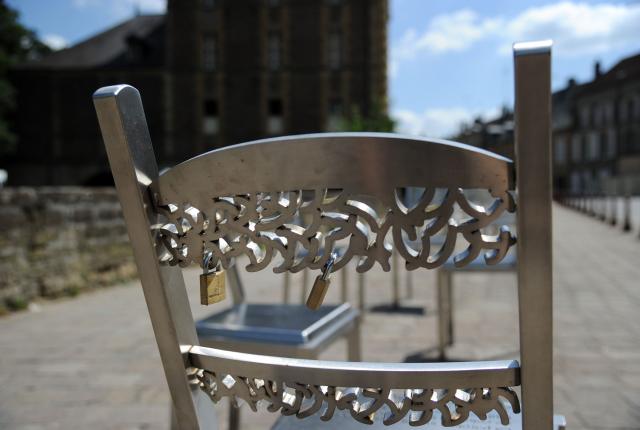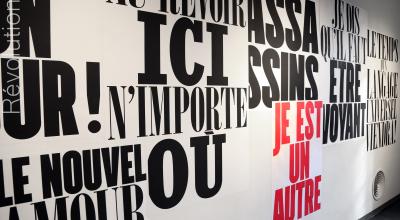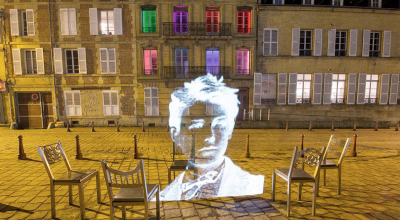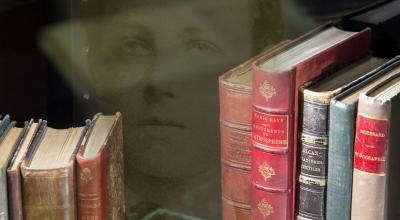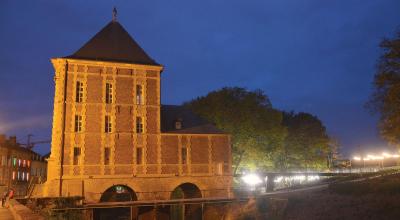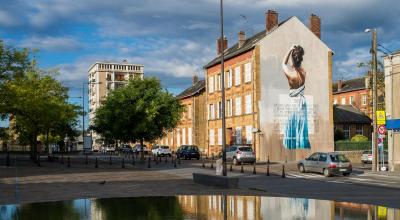
The Poet Arthur Rimbaud
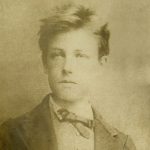
C'est un trou de verdure où chante une rivière,
Accrochant follement aux herbes des haillons
D'argent ; où le soleil, de la montagne fière,
Luit : c'est un petit val qui mousse de rayons.
Un soldat jeune, bouche ouverte, tête nue,
Et la nuque baignant dans le frais cresson bleu,
Dort ; il est étendu dans l'herbe, sous la nue,
Pâle dans son lit vert où la lumière pleut.
Les pieds dans les glaïeuls, il dort. Souriant comme
Sourirait un enfant malade, il fait un somme :
Nature, berce-le chaudement : il a froid.
Les parfums ne font pas frissonner sa narine ;
Il dort dans le soleil, la main sur sa poitrine,
Tranquille. Il a deux trous rouges au côté droit.
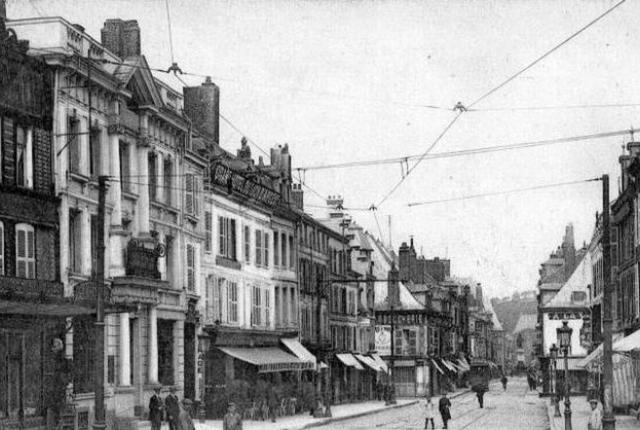
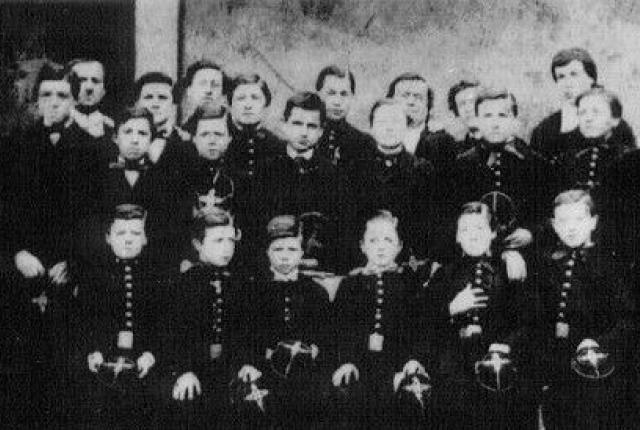
La rue Thiers à Charleville
Classe de l'institut Rossat
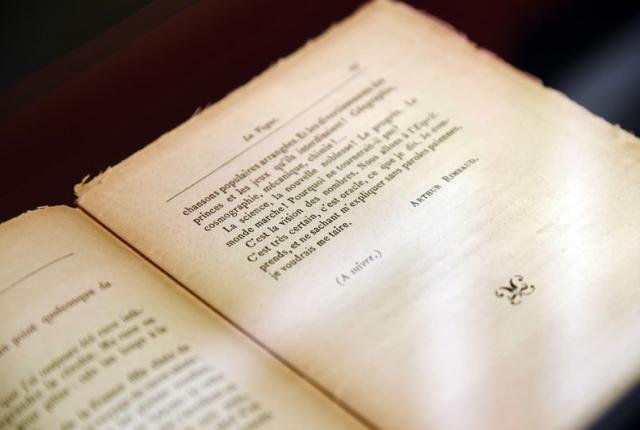
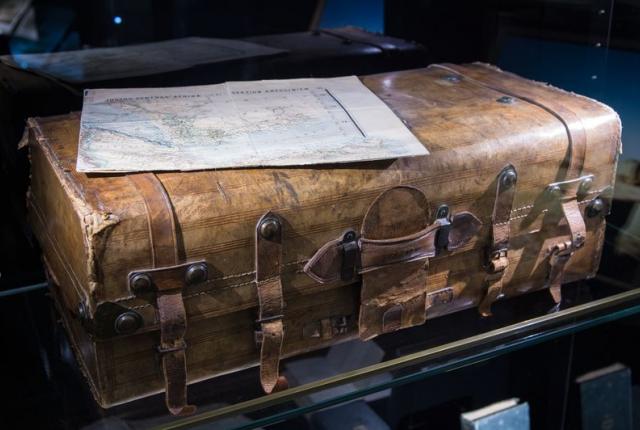
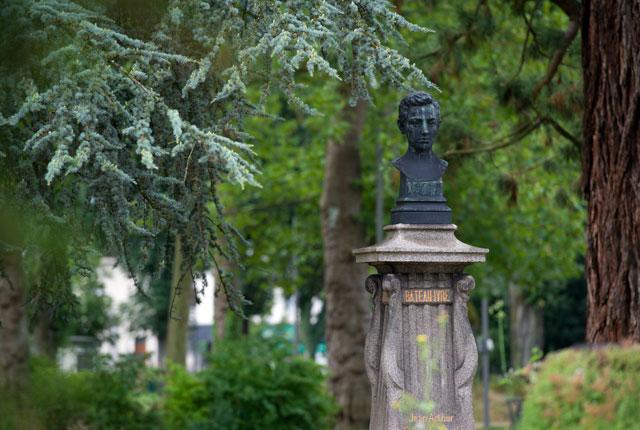
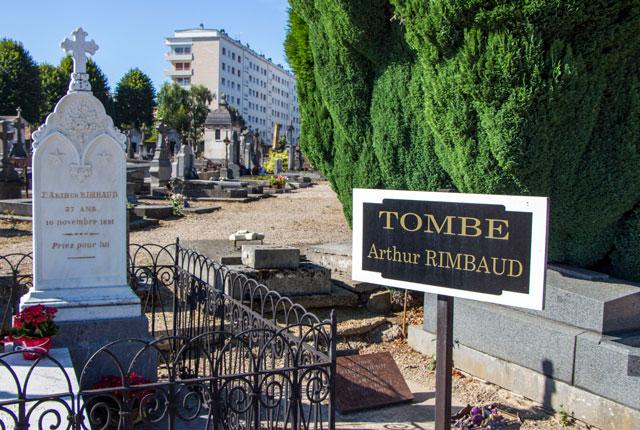
La Tombe d'Arthur Rimbaud dans le cimetière de Charleville
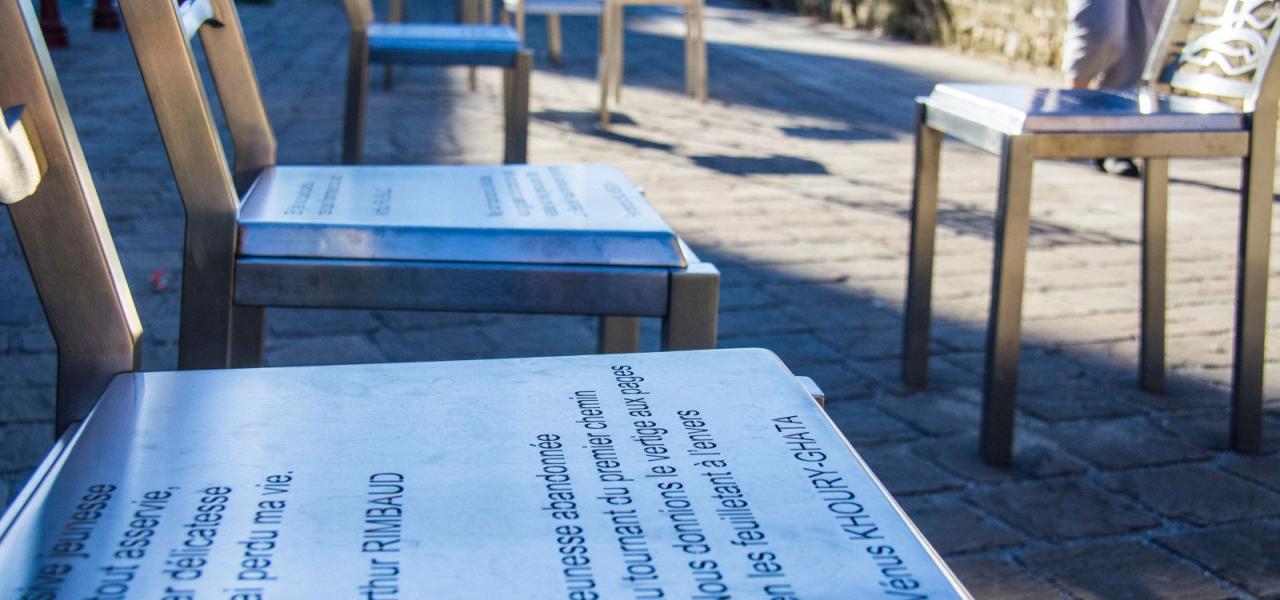
To visit Charleville is to walk in the footsteps of Arthur Rimbaud
Discover the Arthur Rimbaud trail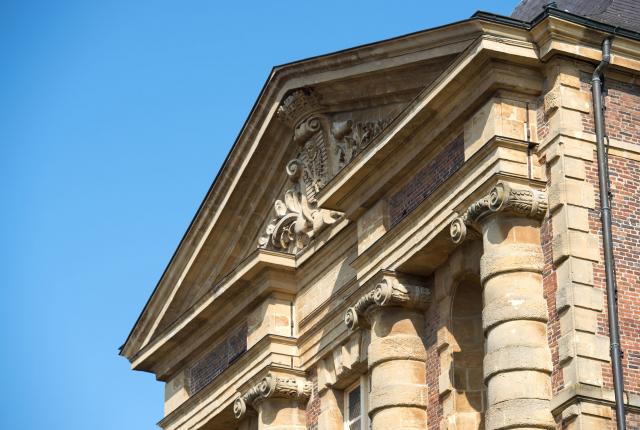
The Printemps des Poètes
The Printemps des Poètes is an event of national significance, but is of particular importance for Charleville in terms of Rimbaud legacy and its connection to contemporary poetry, which takes place in March. The “Printemps des Poètes” 2014 celebrated its 16th spring this year! The Printemps des Poètes is an event in which the sharing of poems is done throughout the city. An event that incites a great number of participants to celebrate poetry, whatever their form of expression. A major get-together for the birth city of Arthur Rimbaud, whose cultural action in favour of poetry was rewarded in October 2012 with the label “City of Poetry”.
Visit the websiteThe International Poetry Biennale
The international Biennale of Poèsie des Ailleurs (BIP) is an event that takes place every two years in the month of October. Poets and artists of all languages and masters of their word come together for 12 days. It gives an smorgasbord of contemporary poetic creations in a sweepingly broad spectrum of styles (slam, hip-hop, of countrysides), never forgetting the young audience members. Most of the shows and events are free, and this is to make the poetry even more accessible to all.
Tours, concerts, lectures, conferences and recitals follow each other in different parts of the city to pay homage to Rimbaud and contemporary poets during these events that draw lovers of poetry and Rimbaud, from all over the world. A rich program that is organised by the cultural service of the city and the Rimbaud Museum.
Visit the website